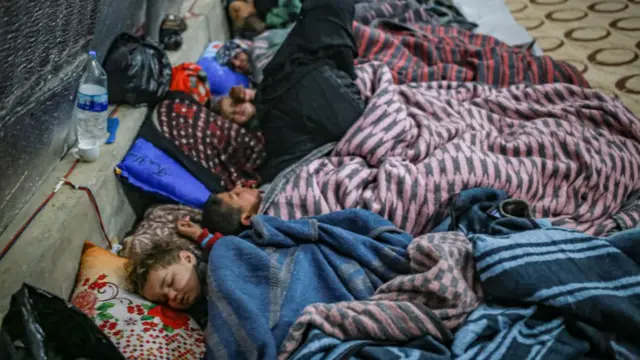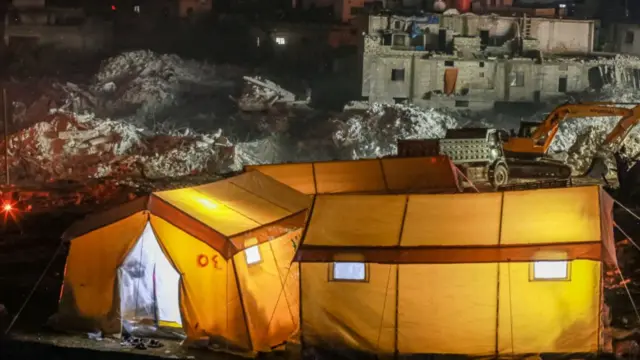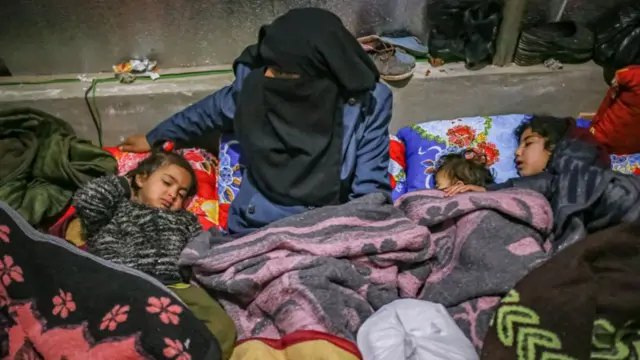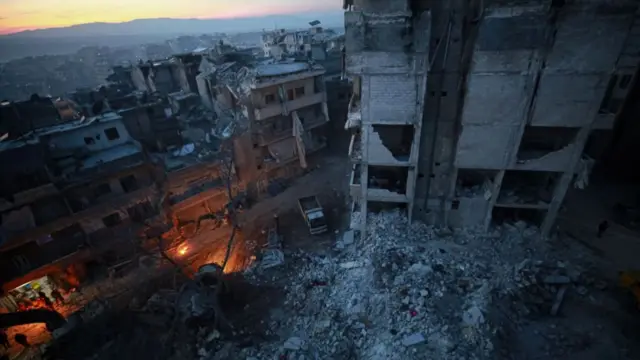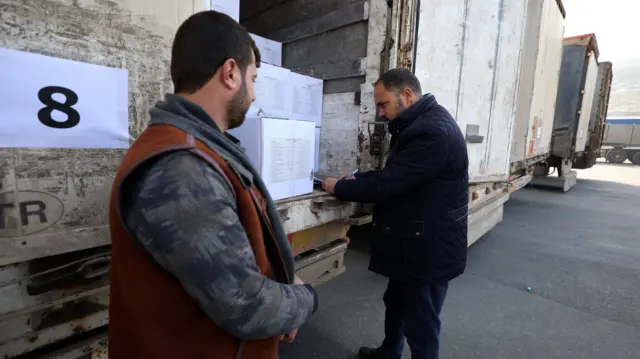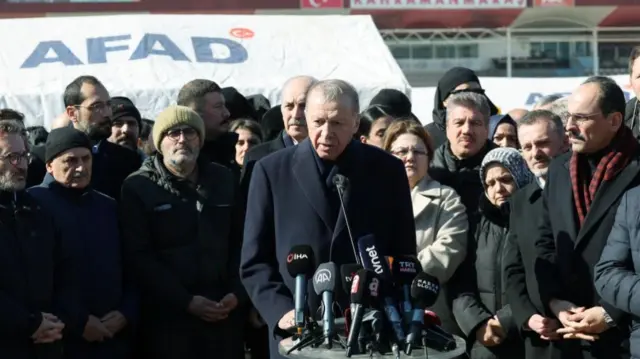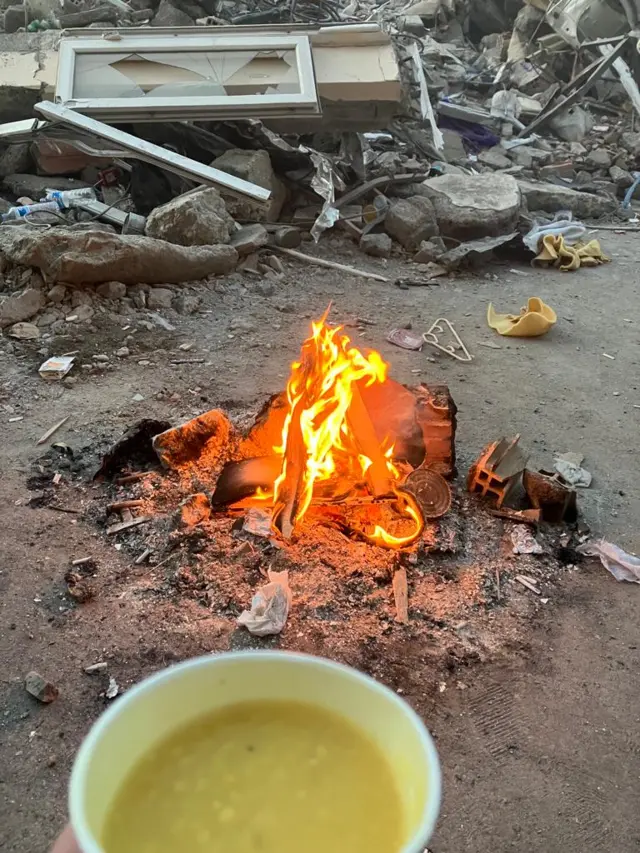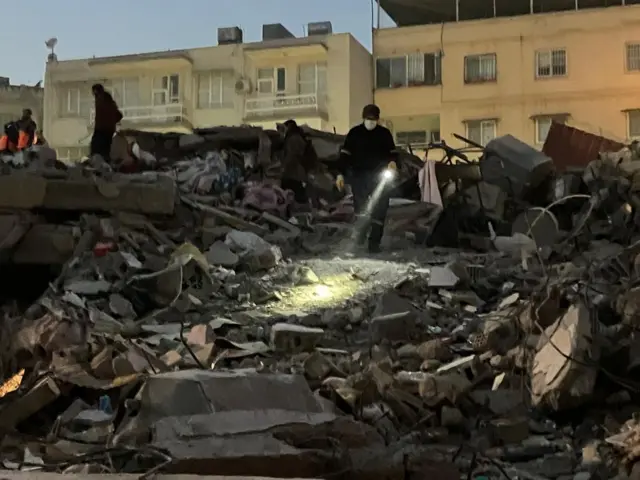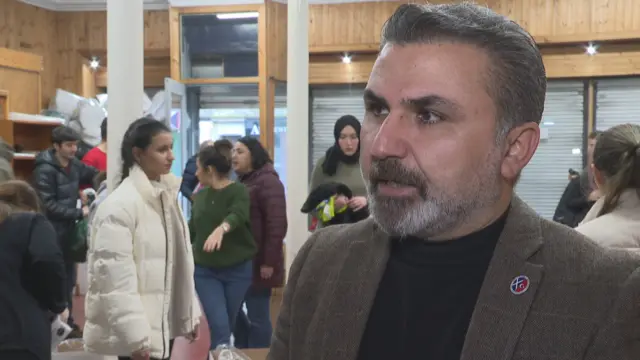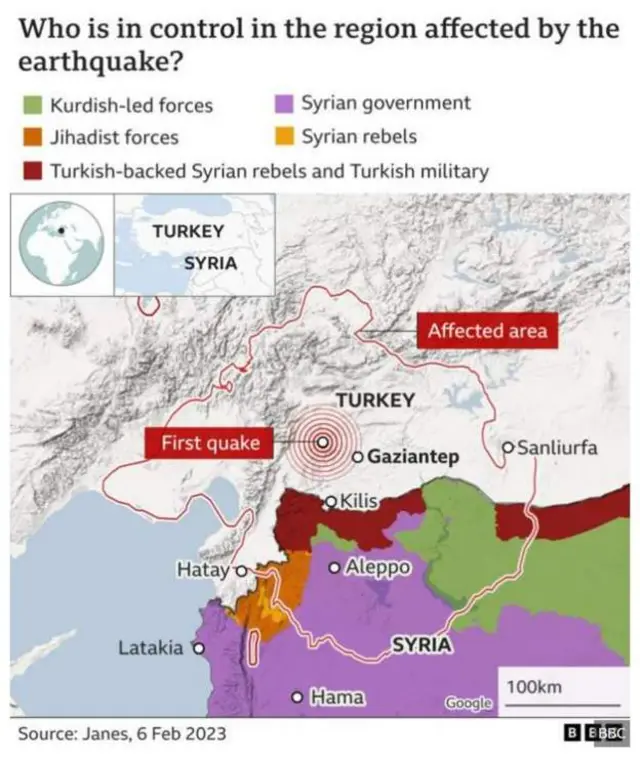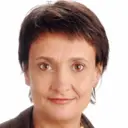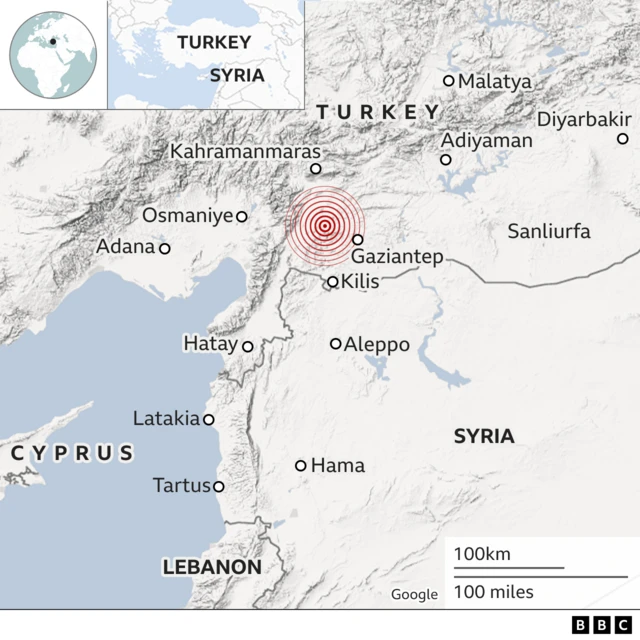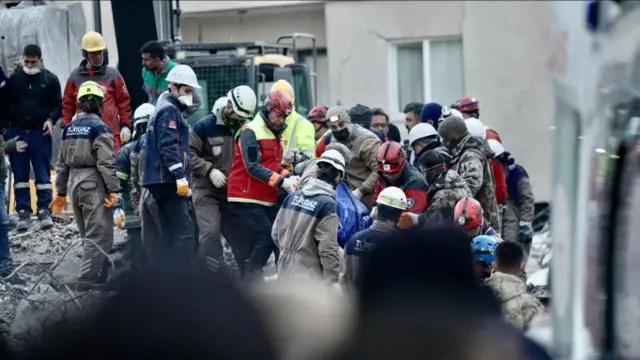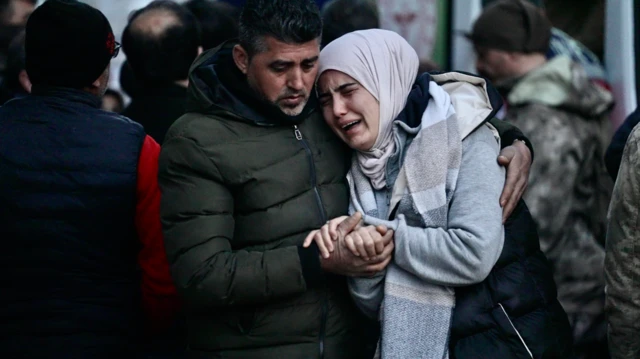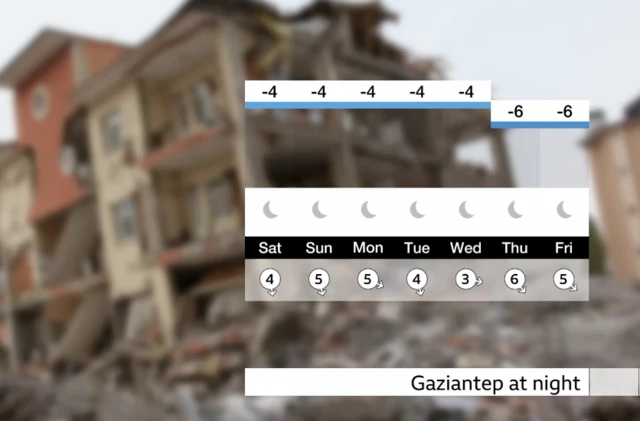Aleppo ‘in the deepest levels of hell’ - aid workerpublished at 14:12 GMT 10 February 2023
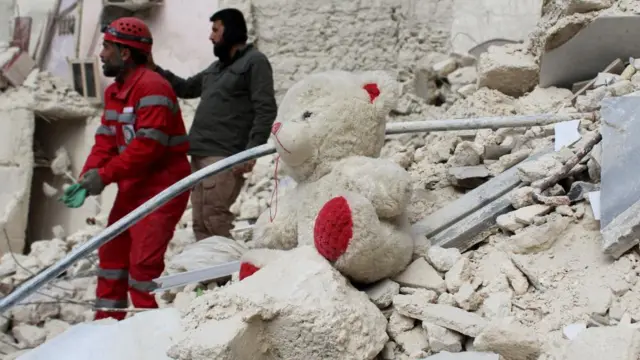 Image source, Reuters
Image source, ReutersA teddy bear is seen on rubble of a building damaged by the earthquake in Aleppo, Syria
An aid worker in the Syrian city of Aleppo has described the situation there as “the deepest levels of hell”.
Father Tony O’Riordan from the Jesuit Refugee Service spoke to the BBC’s World At One from the government-held city, which was already devastated by the country’s 12-year-long civil war.
He says new buildings have collapsed due to the earthquake, and others have become unsafe “displacing people across the city”.
He says that before the earthquake a co-worker had described the situation in Aleppo as “hell”.
“That was before the earthquake hit, so if we were in hell before the earthquake we’re now in the deepest level of hell,” he says.
He says there are more than 120 emergency shelters in the city, and that people are so traumatised by the buildings collapsing after the earthquakes that many are now sleeping in cars and outdoors in sub-zero temperatures.
“We need... civil organisations and governments of the West to pump aid in here very, very quickly,” he says.
